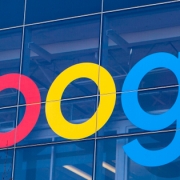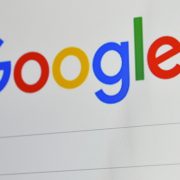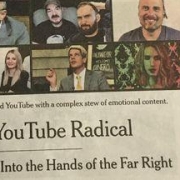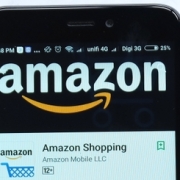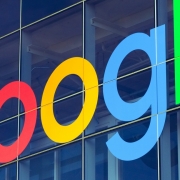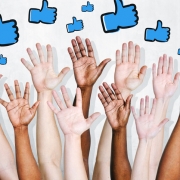When I first met Larry Page and Sergey Brin around 1999, Google’s accidental billionaire founders (they couldn’t even sell their technology to Yahoo for $1 million) gave a talk about the future of search. Mr. Page rambled for a while, then stopped, grinned and said, “what we really want to do is know what you want before you even think it.” The audience laughed nervously, but that’s been a driving force of technology ever since.
Ad men since “Mad Men” have tried to bend our minds into buying products they’re pitching for their clients. But will we ever get real personalized advertising—ad systems that interact with us closely, in a real-time two-way dialogue about our wants and desires—that it will be a step ahead of our thinking?
I posed this question to advertising giant Martin Sorrell. He built the ad agency WPP in the 1980s based on the “big TV idea,” and today we’re inundated 24/7 with Bud Knight, the Geico gecko and Flo from Progressive. It’s now easy to tune out. Yet with the rise of the “fearsome fivesome” online behemoths—Google, Facebook, Amazon,Alibaba and Tencent—Mr. Sorrell suggests we’ve entered the era of “personalization at scale.”
He defines personalized advertising as “content, not perfect and not tent-pole, tailored to your needs and delivered to you at the time you want and the format you respond to.” He’s even created a purely digital advertising company, S4 Capital, to apply the strategy. Facebook, for instance, figured out the average person spends 1.7 seconds looking at Newsfeed posts on mobile devices, so S4 helped its client L’Oréal create 2-second makeup ads.
S4 also helped Netflix promote its drug kingpin show, “Narcos,” by cutting it into a million different short segments. Surfers at WSJ.com might see ads likening the show to business. Those on a sports or fitness site would see ads with lots of ripped muscles.
It’s the feedback loop that makes it personal. The trick, Mr. Sorrell insists, is the holy trinity of the “personalization of communications—first-party data driving digital content and programmatic ads in a continuous loop.” “Programmatic” is the automatic buying of ads on various sites. You’re shown content and ads based on your browsing history, and then whatever you watch or click on is tracked to personalize your next set of ads until, at least in theory, the program knows exactly what you want.
Don’t be worried yet—this technology has a long way to go. Most Facebook ads are still pretty lame. Users hate them, especially ads for things they’ve searched for recently—didn’t I already buy those lobster oven mitts? Yet these ads work pretty well, and Mr. Sorrell estimates that 60% of Facebook ads are from small and medium-size business, not the big brands. They’re wasteful and annoying to users. That’s why the feedback loop is so critical. Financial firms like credit-card companies that know what people actually buy could play a vital role in enhancing personalization. Unfortunately, that’s also what scares the heck out of the privacy fanatics.
Mr. Sorrell thinks that the privacy push, especially Europe’s General Data Protection Regulation and reforms made after hacks and election meddling, mean “the walls in walled gardens have gone up even higher.” The big boys don’t share their data as much.
The best solution would be to grant users ownership of their usage data, which would help improve price signals for digital services. But for now, the platforms own it—and leverage it. Amazon has more than 400 private-label brands, such as 206 Collective shoes, an Allbirds knock-off. Brand companies are freaking out.
So get ready for the greatest battle royale the ad business has ever seen. Of the roughly $500 billion in digital advertising, Mr. Sorrell thinks Google is $150 billion, Facebook $65 billion, Alibaba and Tencent $60 billion and Amazon near $16 billion. Microsoft is at $7 billion. And out of nowhere, so is ByteDance, the Chinese company with the TikTok video app. The data war will be epic.
As of November, Nike no longer sells directly on Amazon, joining Birkenstock, Louis Vuitton, North Face, Patagonia, Ralph Lauren, Rolex and Vans. They want to own the data. Nestlé Nespresso has built a huge direct-to-consumer business with stores and apps, and even paid Starbucks $7 billion to take over the sale of coffee and capsules for Nespresso machines. The new Disney+ streaming service goes direct to consumer without a middleman, so they can own all Baby Yoda data. And here’s the craziest: Procter & Gamble, purveyors of everything from Pampers to Pantene, has built a database of more than a billion consumers, or roughly half of all adults online. It’s all about control of the brand.
Yes, personalized advertising might seem creepy. Get used to it. But it may improve how trillions in goods are sold, and restructure Big Tech through markets rather than regulators.
As I wrapped up this column, my phone pinged me saying I could use a refreshing Heineken right about now. How did it know?
Andy Kessler via wsj.com.

